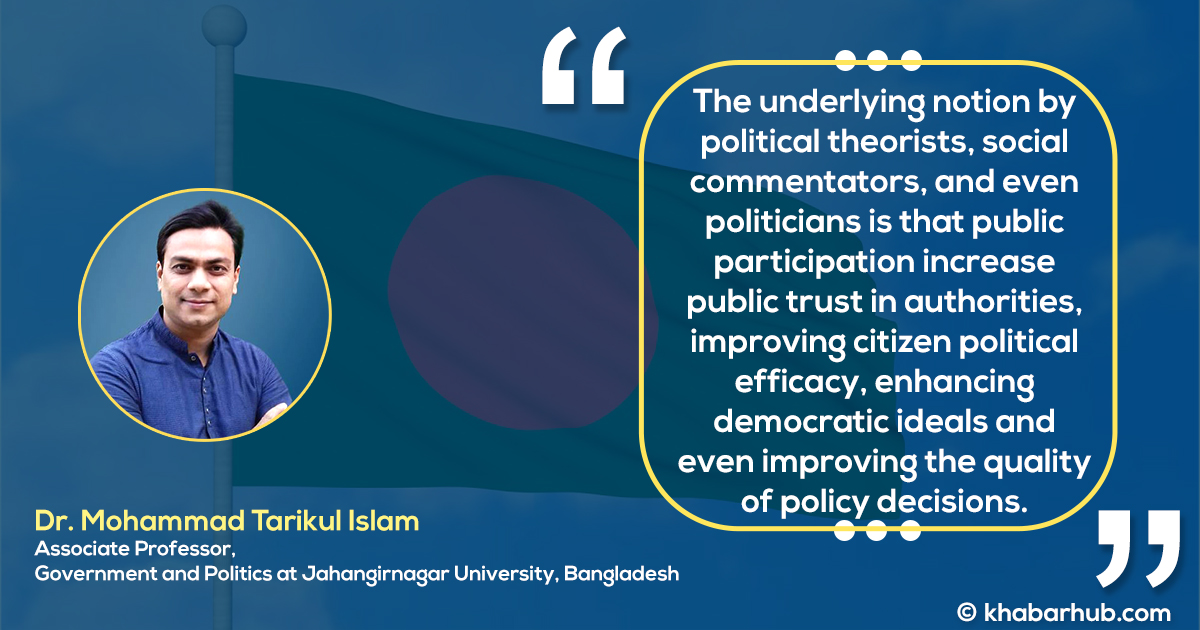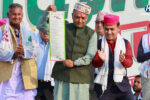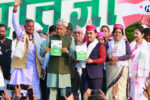People-centered development is an approach that appears in the cutting edge of international development discourse.
It focuses on self-belief, self-reliance, community living with the spirit of togetherness, social justice, and participatory decision-making.
People believe the avowed objectives of any development work cannot be fully accomplished if not people profoundly join in in it.
It is apparent that people’s participation in development projects may help brings effective social change rather than impose an external culture on society.
Similarly, referring to the experience of rural development programs, we can rightly mention that, community participation in the design and management of a development project greatly enhances the likelihood of project success as a result of enhanced golly of fit and augmented sustainability.
Governance and Development- two paradigms have been agenda of state reforms, focusing on two key areas: the creation of more effective and legitimate legal, administrative, financial and policy-making institutions; and the promotion of social justice and empowerment for poor people by attaching an active civil society.
People-centered development rests with the principle of enabling and which endow community to argue their choice for own contentment.
People believe the avowed objectives of any development work cannot be fully accomplished if not people profoundly join in in it.
It is apparent that people’s participation in development projects may help brings effective social change rather than impose an external culture on society.
The underlying notion by political theorists, social commentators, and even politicians is that public participation increases public trust in authorities, improving citizen political efficacy, enhancing democratic ideals, and even improving the quality of policy decisions.
COVID-19 pandemic has taught every national government significantly to adhere to the spirit of people-centered development fostering multi-level governance.
Bangladesh is one of the South Asian countries where152.25million people live in an area of only 55,813 square miles.
Bangladesh is struggling to uproot the colonial legacy of development paradigm by bringing about the elusive phenomenon of people’s participation in development initiative which was ignored and remained only in papers as a striking slogan over the decades.
It is deceptive that, participation is the key to the inclusion of community people in development efforts and the human element in development efforts persuades managing change in an effective manner.
Participation on the other hand an operative means by such people seeks to have some influence and to gain access to the resources which would help them sustain their living standards with a sense of dignity.
Bangladesh has made fair progress by introducing e-governance toward ensuring public service delivery. Successful e-governance systems standardized the rules and procedures.
The processes were re-engineered to eliminate discretion. The design of the systems did not permit any deviation from the established procedure and also reported non-conformance.
Regardless of remarkable progress in some areas, Bangladesh has to walk a long way to get the desired momentum in economic growth, poverty reduction, and improvement in the quality of life and overall social development.
The challenge for emerging democracies for developing countries like Bangladesh is how to internalize them and shape them to reflect regional realities while respecting universal values.
In order to realize national aspirations and global commitment like SDGs, democratic governance has to be attained across levels.
The public sector here in Bangladesh is perceived as an important apparatus to meet the demand of its citizens.
In reality, an unfavorable environment for the proper growth of the private sector, leadership crisis, lack of transparency and accountability in administration, ineffective political institutions and so on are the major hurdles remaining in the sphere of public subsists.
Moreover, appropriate systems of decentralized and local governance are also critical for the provision of effective and responsive social services at the local level.
Needless to say that, identifying appropriate interventions to support and build state capacity in Bangladesh requires an assessment of their current realities, as well as an understanding of the overall context within which these realities evolved.
The challenge for emerging democracies for developing countries like Bangladesh is how to internalize them and shape them to reflect regional realities while respecting universal values.
In this fashion, people can take ownership of them so that they are not seen simply as being imposed. There is a crucial issue of state-civil relations in many nascent democracies.
Governance at the heart of development agenda primarily means encouraging rural people to become self-reliant making them capable of enlightening their participation in socio-economic development and nation-building measures through mobilization and utilization of resources.
Governance and policy enable sustaining the development goal. It could be debated that participation as an alliance is the interpretation that dominants much of the practice of current development programs and projects.
Gradually participation has been named as an exercise of empowering people who have gained wide public support and the term has been accepted into development vocabulary.
Legal frameworks should be fair and enforced impartially, particularly laws on human rights. Transparency is built on the free flow of information.
People-centered development rests with the principle of enabling and which endow community to argue their choice for own contentment.
Time is cracking in and around to come around to ask what kinds of reasoning should count in the assessment of the development paradigm where human elements are hardly touched upon.
The mobilizing power of people in Bangladesh that have moved towards greater political liberalization has been well recorded in the literature.
As more people enter the political arena, changes in their voting behavior, their presence in national parliaments, and their active role in civil society undoubtedly increased the spirit of democratic governance in Bangladesh.
It is evident that an effective, transparent and accountable civil service is one basic requirement for establishing legitimate institutions and ensuring necessary development services.
Investment requires a long term policy framework and it is only a politically stable government that can formulate it with due diligence.
The importance of representative democracy in favor of “participatory” democracy should not be minimized.
Elections must be viewed in the context of a longer-term process, including pre- and post-election periods, and not just in the context of Election Day.
The international community has to be more unified, and domestic CSOs should continue to have a critical role in ensuring governmental adherence to democratic norms.
In developing countries like Bangladesh, CSOs have a role in continually reviewing standards to ensure that they are culturally contextualized and agreed upon.
Such organizations must also help build a civic understanding of the importance of governmental adherence to standards and be willing to participate in government performance audits.
Regardless of remarkable progress in several important areas, Bangladesh has to walk a long way to get the desired momentum in economic growth, poverty reduction, and improvement in the quality of life and overall social development.
In order to realize national aspirations and global commitment like SDGs, democratic governance has to be attained across levels. United Nations has a major role to play in developing countries like Bangladesh to encourage the government to translate the global adherence for democratic governance into action.
All men and women should have a voice in decision-making, either directly or through legitimate intermediate institutions that represent their interests.
Processes and institutions produce results that meet needs while making the best use of resources. Decision-makers in government, the private sector and civil society organizations are accountable to the public, as well as to institutional stakeholders.
Such broad participation is built on freedom of association and speech, as well as capabilities to participate constructively.
Legal frameworks should be fair and enforced impartially, particularly laws on human rights. Transparency is built on the free flow of information.
Processes, institutions, and information are directly accessible to those concerned with them, and enough information is provided to understand and monitor them. Institutions and processes try to serve all stakeholders.
Consensus orientation-good governance mediates differing interests to reach a broad consensus on what is in the best interest of the group, and where possible, on policies and procedures.
All men and women have opportunities to improve or maintain their well-being.
Processes and institutions produce results that meet needs while making the best use of resources. Decision-makers in government, the private sector and civil society organizations are accountable to the public, as well as to institutional stakeholders.
This accountability differs depending on the organization and whether the decision is internal or external to an organization; and leaders and the public have a broad and long-term perspective on good governance and human development, along with a sense of what is needed for such development.
There is also an understanding of the historical, cultural, and social complexities in which that perspective is grounded.
(Dr. Mohammad Tarikul Islam is an Associate Professor of the Department of Government and Politics at Jahangirnagar University in Bangladesh. He is the Visiting Scholar of Oxford and Cambridge. Prior to joining the university, Dr. Islam was serving the United Nations for seven years)








Comment